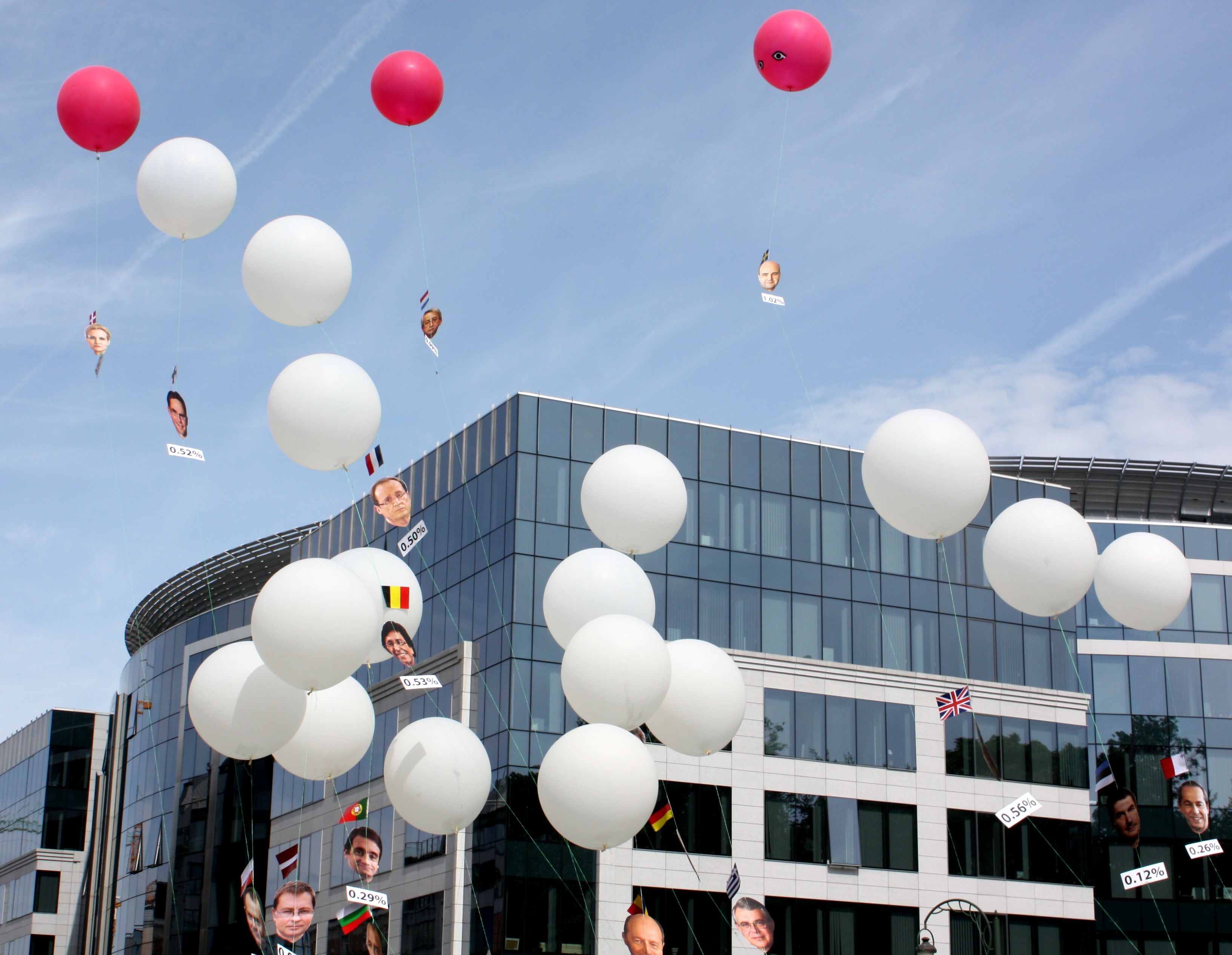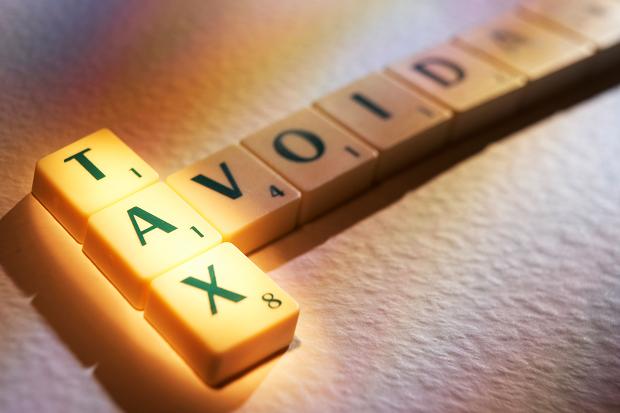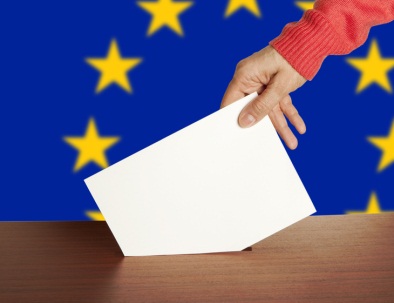What your vote means for global development issues
If we really want to achieve sustainable development, we need to start by making development work for all, both in Europe and abroad. As long as poverty and inequality persist and as long as there are first and second class citizens we will never achieve this goal.
Your vote at the European elections can make a difference.
The European Parliament has the power to decide how hard the European Union should work for a fairer world. In other words it says how much resources are available to achieve this goal. But it is not just about voting. Who you vote for does make a difference. Here are a couple of issues and ideas you should look for if you want your representative in the EU to work for a fairer world.
Funding the Fight

Are you voting for an MEP who is willing to hold Europe to account for its aid commitments?
Aid plays a unique role in tackling poverty because it is more flexible and less volatile than other forms of finance, especially in times of crisis. Aid also pays for an important share of essential services such as health and education and can be targeted at the poorest communities and countries where other resources are often very scarce. Aid is also essential during humanitarian crisis and emergencies.
Many years ago, EU countries committed to increase aid to 0.7% of the gross national income by 2015. But in 2013, they only managed 0.41% on average.
In light of this disappointment, the European Parliament debated whether EU countries should not only set out a clear roadmap towards meeting this 0.7% target, but legally bind themselves to keeping their promises to developing countries.[1]
In June 2013, MEPs voted in favour of strengthening this commitment by a very small margin, thanks to the combined vote of left, centre-left, green, centrist and a small number of centre-right MEPs, showing above all that in the European Parliament every vote counts.
Click here see how different groups and MEPs from each EU country voted, and who made the difference.
Are you voting for someone who does not want to play with aid figures to paint a different picture?

What can be counted as aid is essentially restricted to grants –like a donation, if you want to think about it that way. But a number of countries in the EU are putting pressure to change the definition so that more things can be counted as aid. This is hardly a surprise given the lack of progress on the 0.7% target, but it is a major problem.
Two reasons why: Firstly, broadening the definition and not changing the target is like moving the goal posts in the middle of a game: not very fair. Secondly, they want to include products such as export subsidies, which purely support national industries and have no clear relation to development, or insurance and loan guarantees, which do not entail a transfer of resources to developing countries. Now, not only am I moving the posts but I have also set them further apart so that it is easier to score a goal.
Although the definition of what should be counted as aid is set by the Organisation for Economic Co-operation and Development, the European Parliament is the body that holds the EU to account for delivering on its international commitments and make sure they do so by playing a fair game.
In May 2010, the MEPs clearly showed they agree that EU countries need to play by the rules, with an overwhelming majority voting against any attempt to move the goalposts![2] But not all of them did…click here to see how different groups and MEPs in your country voted.
Are you voting for someone who wants to help developing countries harness and expend their own resources effectively?

Even if aid plays a crucial role in building a fairer world, especially in the poorest countries, it’s a relatively small with developing countries’ own resources. So, problem solved, you might think. Well not so fast!
The problem is that domestic revenues are scarce and, more importantly, are under attack. In 2008, tax revenues in high income countries represented approximately 30 per cent of GDP. The figure drops to 15 per cent in low income countries. Small GDPs and small revenues mean very little money to spend on things such as health and education. This is the main reason why aid is still necessary to plug the holes.
But let’s go back to the “attack”. Developing countries’ tax systems are constantly abused by reckless individuals and multinational companies. Estimates suggest they lost US$ 946.7 billion in 2011 alone, approximately seven times what they received in aid.
The European Parliament can help to tackle this problem by making it harder for companies to evade taxes and for countries to collect them. In fact, this was one of the motivations behind discussions in the Parliament to request all multinational companies to make their accounts public in each country where they operate instead of aggregating them at the headquarters level. This would help developing countries’ tax authorities as well as reveal whether they are using tax havens to avoid paying taxes.
Following intense negotiations with EU governments, an overwhelming majority of MEPs gave the thumbs up to this initiative in June 2013. Nonetheless, a couple of countries presented some resistance. Guess which ones…
Are you voting for someone who thinks Europe can do more and that we should all contribute according to our resources?

Aid is scarce. It has been said before, but what if we could find additional money for development? There are big ideas out there, one of which is close to being realised in the European Union: a tiny tax on all financial transactions which has the potential to raise significant additional revenues.
The 11 EU countries which have so far decided to put in place this ‘Financial Transaction Tax’ are expected to raise as much as €35 billion a year with a tax on all financial products as has been proposed. With poverty and inequality on the rise across Europe, and around 64 million people worldwide now in poverty, according to the World Bank, due to a financial crisis for which they are certainly not to blame, those responsible should pay their fair share.
A month before MEPs overwhelmingly voted in favour of these 11 EU countries going ahead with this tax, they also reminded them to dedicate a significant part of the money generated both to sustainable development and the fight against climate change.[3] While a number of MEPs declined to do so – click here to see how they all voted – the majority sent a strong signal to these pioneering countries that now is the time for this big idea!
Are you voting for someone who bases all decisions and political actions on fundamental human rights?
Aid can respond to different approaches and objectives. But, irrespective of what kind of model of aid we select or we agree with, there is a core of principles arising from international human rights treaties which call on government institutions and elected representatives, as duty-bearers, to focus on people’s “rights” rather than “needs”.
This is why in the forthcoming elections of MEPs we have all to pay attention on the existence in MEP candidates’ programmes of some indicators which can show us if they are aware about their duties in relations to human rights which apply both within and outside the EU. These “human rights duties” are a crucial component of aid and development policies.
Assessing the capacity of the future MEPs as duty-bearers requires consideration, for example, of the following questions:
- Do MEP candidates know that they are duty bearers and have an obligation to respect, protect and fulfil certain rights?
- Will they allocate enough resources (financial, technical, human) to fulfil their obligations arising from International Human Rights Treaties?
- Do they provide consultations with a wide range of international and national actors, including government agencies, national human rights institutions and civil society organizations?
- Do they take into account the objective of strengthen the capacity of Member States and Developing Countries in meeting their human rights obligations?
Want to find out more?
See all the votes here.
[1] “Recalls the commitment made to allocate 0.7% of gross national income to official development assistance (ODA) by 2015; stresses that this level has to be maintained in a future framework and calls on all Member States to introduce this through binding legislation and to adopt multiannual budget timetables in order to reach the target;”
[2] “Calls on the EU and the OECD not to broaden the definition of development aid (ODA) … ”
[3] “…reminds EU Member States that have agreed to establish the financial transaction tax to devote part of those funds to sustainable development and the fight against climate change;”
